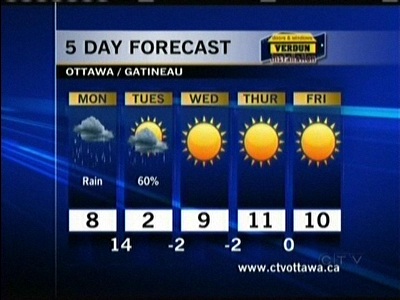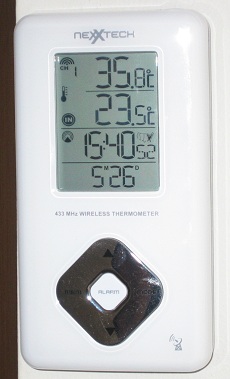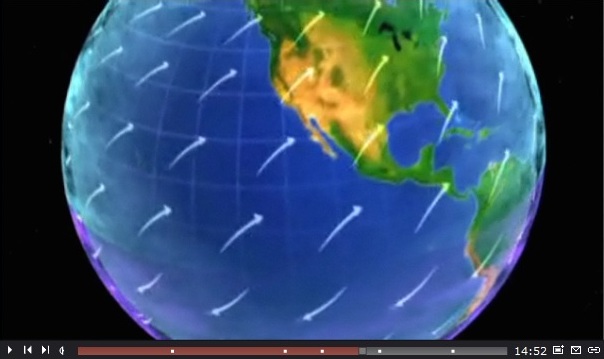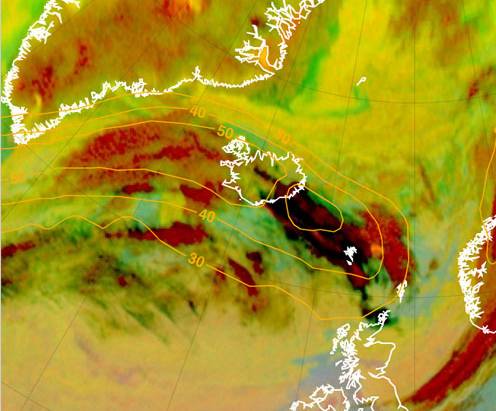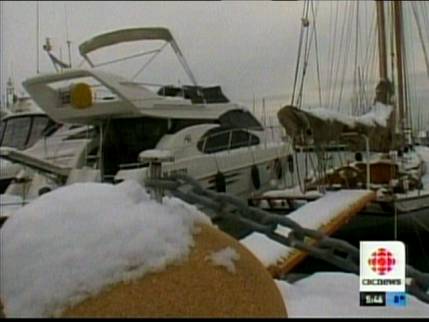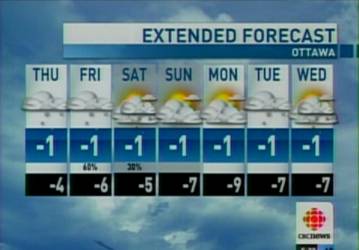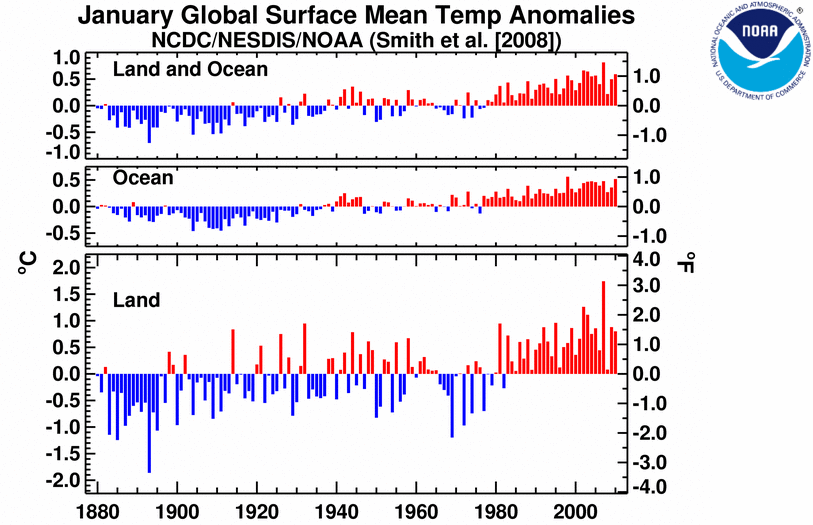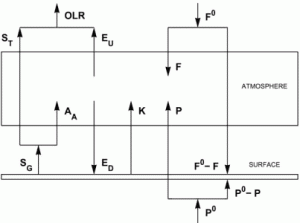Someone just called my attention to this BBC interview with Phil Jones, director of the Climatic Research Unit (CRU) at the University of East Anglia (UEA), which has been at the center of the Climategate e-mails.
It has been suggested that Jones admitted that there has been no global warming since 1995, or that he made an amazing retreat. So I was curious as to what he actually said. Here are a few tidbits, hopefully not taken out of context:
Q. Do you agree that according to the global temperature record used by the IPCC, the rates of global warming from 1860-1880, 1910-1940 and 1975-1998 were identical?
A. […T]he warming rates for all 4 periods [NB: Jones counted 1975-1998 and 1975-2009 as two separate periods] are similar and not statistically significantly different from each other.
Q. Do you agree that from 1995 to the present there has been no statistically-significant global warming?
A. Yes, but only just. [… The] trend (0.12C per decade) is positive, but not significant at the 95% significance level.
Q. Do you agree that from January 2002 to the present there has been statistically significant global cooling?
A. No. […] The trend this time is negative (-0.12C per decade), but this trend is not statistically significant.
Q. There is a debate over whether the Medieval Warm Period (MWP) was global or not.
A. There is much debate over whether the Medieval Warm Period was global in extent or not. The MWP is most clearly expressed in parts of North America, the North Atlantic and Europe and parts of Asia. For it to be global in extent the MWP would need to be seen clearly in more records from the tropical regions and the Southern Hemisphere. There are very few palaeoclimatic records for these latter two regions.
Of course, if the MWP was shown to be global in extent and as warm or warmer than today (based on an equivalent coverage over the NH and SH) then obviously the late-20th century warmth would not be unprecedented. On the other hand, if the MWP was global, but was less warm that today, then current warmth would be unprecedented.
Q. If you agree that there were similar periods of warming since 1850 to the current period, and that the MWP is under debate, what factors convince you that recent warming has been largely man-made?
A. The fact that we can’t explain the warming from the 1950s by solar and volcanic forcing […].
Q. When scientists say “the debate on climate change is over”, what exactly do they mean […] ?
A. […] I don’t believe the vast majority of climate scientists think this.
Meanwhile, another error in the IPCC report has been uncovered, this one about the size of the Dutch countryside that is under sea level (26%, not 55%). An inconsequential error by itself, but apparently, it was enough for Robert Watson, former IPCC chief, to call for an investigation of this apparent bias, namely that all the errors uncovered so far exaggerate the presumed magnitude and effect of the warming.
So who can we believe? I don’t want to join the climate skeptics (at the very least, not without getting a hefty retainer from an oil company first!) but obviously, the choir hasn’t been completely honest with us either. What does the raw data say? Well, according to the UK Met Office, there has been warming in the last 160 years:
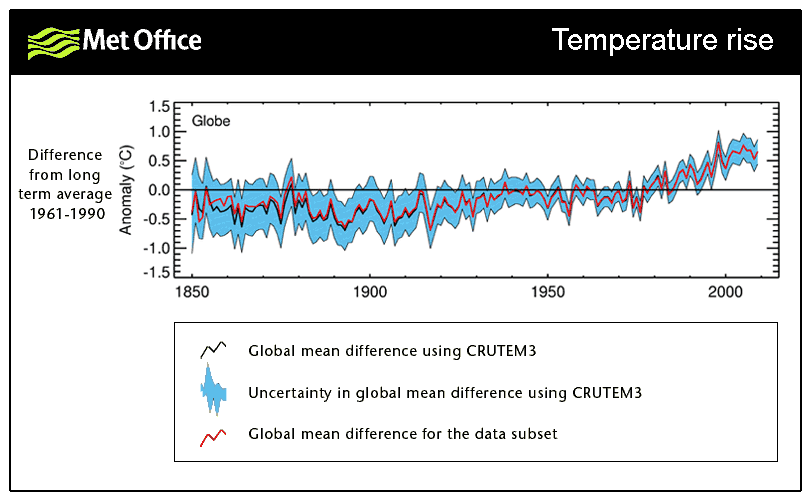
However, if I accept the short-term trend as just that, short-term, what we’re left with is a long-term warming of about 1 degree over 160 years… which is about 0.06 degrees per decade, about half the decadal figure during the last (1975-2002) warming period, a period that is by no means unique, according to Jones.
So… what am I to think?
 The world’s population is expected to reach the magic number of 7 billion today. Trick or treat!
The world’s population is expected to reach the magic number of 7 billion today. Trick or treat!
